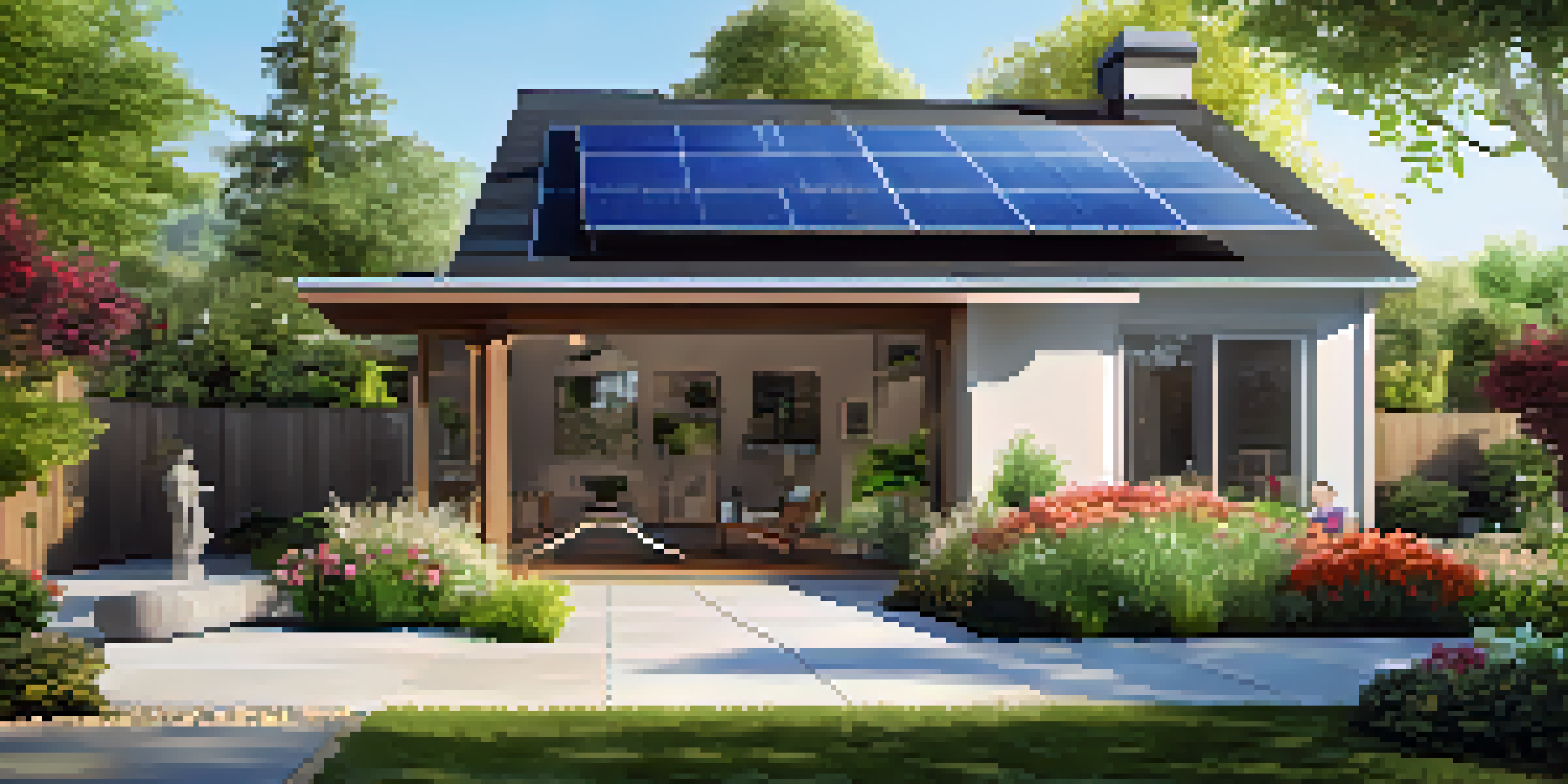Eligibility Criteria for Energy Efficiency Tax Credits Explained

What Are Energy Efficiency Tax Credits?
Energy efficiency tax credits are incentives offered by the government to encourage homeowners and businesses to invest in energy-saving improvements. These credits can significantly reduce your tax bill, making it more affordable to upgrade your property. They aim to promote sustainable practices while lowering energy consumption, benefiting both the environment and your wallet.
The greatest threat to our planet is the belief that someone else will save it.
Essentially, when you make qualifying energy-efficient upgrades—like installing solar panels or energy-efficient windows—you can receive a percentage of those costs back as a tax credit. This means that not only do you save on energy bills, but you also gain a financial benefit come tax season. It's a win-win situation for both your finances and the planet.
Understanding these credits can be crucial for your financial planning, especially if you’re considering home improvements. Familiarizing yourself with the eligibility criteria ensures you don’t miss out on these valuable incentives that can help you save money in the long run.
Who Can Apply for These Tax Credits?
Both homeowners and businesses can take advantage of energy efficiency tax credits, each with specific eligibility requirements. Homeowners may qualify for credits on improvements made to their primary residence, whereas businesses can claim credits for energy-saving enhancements made to commercial properties. This inclusivity encourages a broader range of participants to engage in energy-efficient practices.

For homeowners, it’s important to note that certain income levels may influence eligibility, as some credits are designed to benefit lower and middle-income families. Meanwhile, businesses must often meet specific criteria related to their industry and the types of energy-saving measures they implement. This ensures that the credits are distributed fairly and effectively.
Tax Credits for Energy Upgrades
Energy efficiency tax credits help reduce your tax bill when you invest in qualifying energy-saving improvements.
If you're a homeowner or a business owner, it’s essential to check your local regulations and guidelines. This way, you can ensure that you meet the requirements and can effectively apply for the credits that you deserve.
Types of Energy-Efficient Improvements that Qualify
Numerous improvements can qualify for energy efficiency tax credits, making it easier to find the right projects for your needs. Common upgrades include installing solar panels, energy-efficient HVAC systems, insulation, and energy-efficient doors and windows. Each of these improvements can help reduce energy consumption significantly, which is the main goal of these incentives.
Energy efficiency is not just a benefit to the environment; it also makes economic sense.
For example, switching to Energy Star-rated appliances not only lowers your electricity bill but can also make you eligible for tax credits. Similarly, upgrading to high-efficiency furnaces or air conditioning units can enhance your home's comfort while also offering financial incentives. It’s like getting a bonus for making your home more sustainable.
Remember that the specifics can vary by location, so it's crucial to research the particular improvements that qualify in your area. Being informed will help you make the most out of the tax credits available to you.
Income Limitations and Other Restrictions
While energy efficiency tax credits are designed to encourage widespread participation, there may be income limitations that affect eligibility. These limitations ensure that the credits primarily benefit those who may need financial assistance in making energy-efficient upgrades. Understanding these restrictions can help you determine if you're eligible before making any investments.
In addition to income limits, there may be restrictions based on the type of property or specific improvements you plan to make. For instance, some credits may only apply to primary residences, while others could extend to rental properties or commercial buildings. Being aware of these nuances is essential for a successful application.
Eligibility for Homeowners and Businesses
Both homeowners and businesses can apply for these credits, each with specific eligibility requirements.
Consulting with a tax professional can provide clarity regarding any income limitations and help you navigate the application process. This way, you can maximize your benefits and ensure compliance with all necessary regulations.
How to Apply for Energy Efficiency Tax Credits
Applying for energy efficiency tax credits can be straightforward if you follow the necessary steps. First, keep detailed records of all qualifying improvements, including receipts and installation documentation. This information will be crucial when filing your taxes and claiming the credit.
Next, you'll need to fill out the appropriate tax forms, such as IRS Form 5695 for residential energy credits. This form allows you to calculate the total amount of your credits based on the improvements made. It's essential to double-check your calculations to ensure accuracy and avoid any potential issues with the IRS.
Finally, consider seeking advice from a tax professional if you have any questions or concerns about the application process. They can provide valuable insights and help you make the most of the credits available to you.
Important Deadlines to Keep in Mind
When it comes to tax credits, timing is everything. Each year, there are specific deadlines by which you must complete your energy-efficient upgrades and submit your tax forms to qualify for credits. Keeping track of these deadlines will help you avoid missing out on potential savings.
Typically, the deadline for making qualifying improvements aligns with the end of the tax year, which is December 31st in the United States. This means that any upgrades made after this date may not qualify for that tax year's credits. Planning ahead will give you ample time to complete your projects and gather necessary documentation before the deadline.
Important Deadlines to Remember
It's crucial to be aware of deadlines for making upgrades and submitting tax forms to qualify for the credits.
Additionally, stay informed about any changes to tax laws or credit programs, as these can impact eligibility and deadlines. Regularly checking official resources can help you keep your finger on the pulse of any important updates.
Conclusion: Maximize Your Savings with Energy Efficiency
In conclusion, energy efficiency tax credits represent a valuable opportunity for homeowners and businesses alike to save money while promoting sustainable practices. By understanding the eligibility criteria, types of qualifying improvements, and application processes, you can make informed decisions that benefit both your finances and the environment.
Whether you're planning to install solar panels or upgrade your HVAC system, the financial incentives available can make these projects more attainable. Remember to keep organized records, stay aware of deadlines, and consult with tax professionals if needed.

Ultimately, taking advantage of these credits not only reduces your tax burden but also contributes to a greener future. So, roll up your sleeves and start planning those energy-efficient upgrades to maximize your savings!